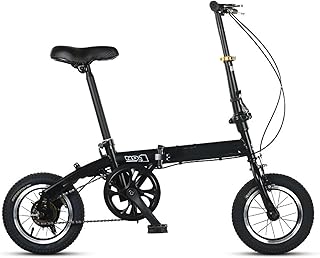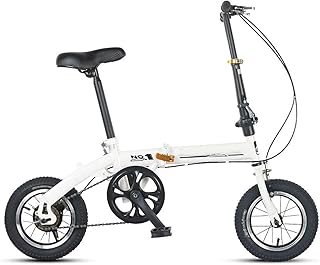The global Folding Bikes Market is on the brink of a significant growth phase, driven by the escalating need for compact and eco-friendly commuting solutions. In a world grappling with urban congestion and escalating environmental concerns, folding bikes are emerging as a practical, space-saving option for city dwellers. Exactitude Consultancy predicts a robust 8.7% CAGR for the folding bikes market from 2022 to 2029, with a projected market value surpassing USD 1,288 million by 2029, up from USD 607 million in 2020.
As cities worldwide grapple with burgeoning populations, traffic snarls, and mounting pollution levels, folding bikes are stepping in as a portable, efficient, and sustainable substitute for conventional transportation modes. The United Nations forecasts that urban dwellers will surge to 68% of the global populace by 2050, fueling the demand for solutions that streamline commuting challenges and curb environmental harm. This urbanization wave underscores the pivotal role folding bikes are poised to play in reshaping the urban mobility landscape.
The escalating focus on reducing carbon footprints stands out as a pivotal driver propelling the folding bike market forward. With climate change concerns mounting, consumers and governments are actively seeking greener alternatives to gas-guzzling vehicles. Folding bikes, emitting zero emissions, have emerged as an ideal option for short commutes and last-mile travel, resonating with environmentally-conscious individuals seeking sustainable mobility solutions.
The seamless integration of folding bikes with multimodal commuting trends further amplifies their appeal. By enabling users to seamlessly transition between biking and public transit, these portable bikes are aligning with the burgeoning trend of combining various transportation modes for efficient urban travel. The market’s growth trajectory is further buoyed by factors like traffic congestion in urban areas, fluctuating fuel prices, and the increasing affordability of folding bikes compared to traditional vehicles.
However, despite the promising growth prospects, the folding bike market faces hurdles that could impede its expansion. Challenges such as the higher price point compared to conventional bikes, potential discomfort for long-distance rides, and stiff competition from electric scooters and e-bikes in urban settings pose notable obstacles to market penetration.
The global folding bike market segmentation based on product type, application, and region offers a comprehensive view of the industry landscape. With North America, Europe, and the Asia-Pacific region emerging as key growth hubs, the market is witnessing a surge in demand propelled by factors like urbanization, environmental consciousness, and government support for sustainable transportation initiatives.
Leading players in the folding bike market, including Brompton Bicycle Ltd, Dahon California Inc, Tern Bicycle, Montague Corporation, and others, are at the forefront of innovation, offering a diverse range of folding bike models tailored to meet the evolving needs of urban commuters. The future outlook for the folding bike market remains promising, with advancements in materials, folding mechanisms, and electric models poised to further enhance the appeal of these versatile bikes.
Government backing for cycling infrastructure and sustainable transport policies is expected to provide a robust foundation for the market’s expansion. As cities worldwide ramp up investments in bike-friendly infrastructure, the demand for folding bikes is anticipated to soar, underscoring their pivotal role in shaping the future of urban mobility.
📰 Related Articles
- Soy Protein Market Set for Strong Growth Amid Government Support
- Off-Road Motorcycle Market Set to Double by 2031 Amid Innovation and Growth
- Global Feminine Hygiene Market Set for Sustainable Growth Amid Rising Awareness
- Camping Tent Market Set for Substantial Growth Amid Innovation
- UK Women’s Footwear Market Set for Decade of Growth






